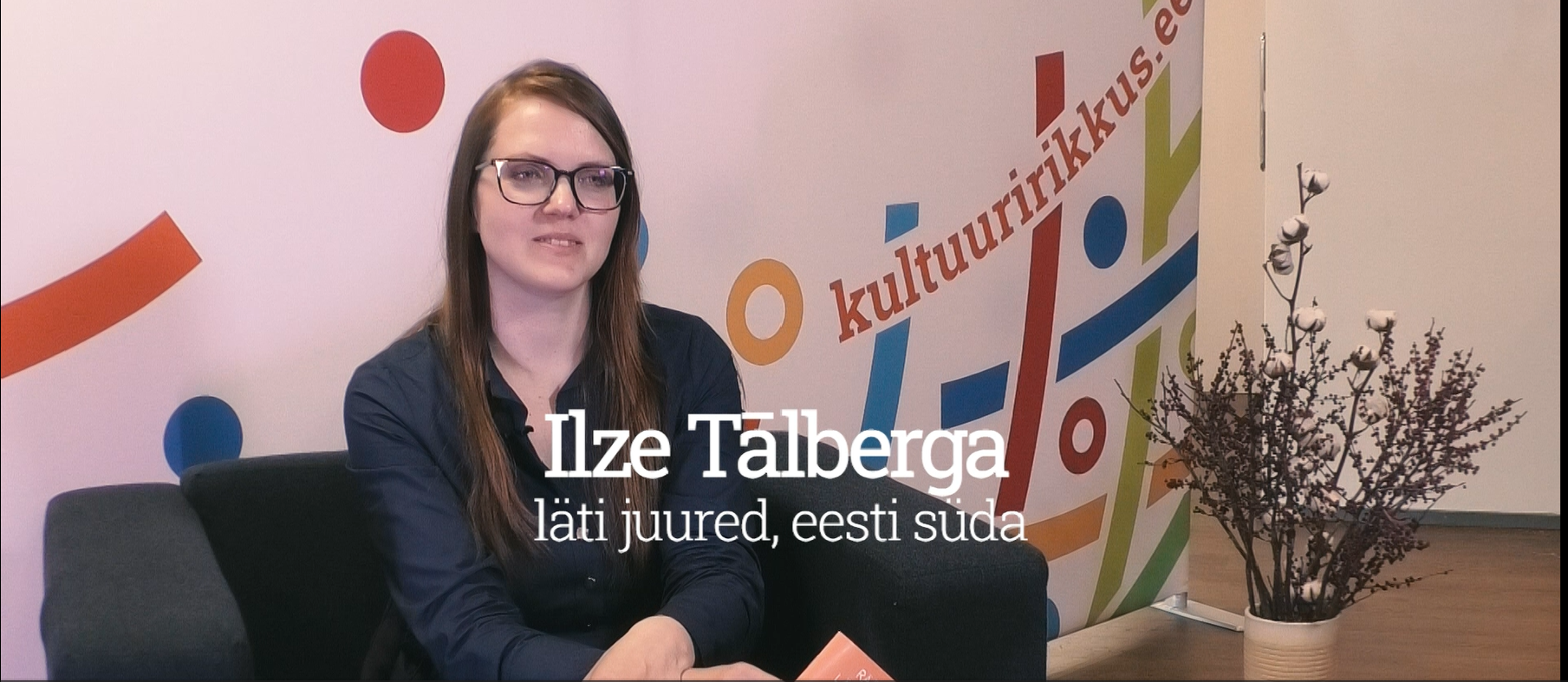Ilze Tālberga is a Latvian who has lived in Estonia for 20 years. Her journey to Estonia began with a desire to learn Estonian, but soon, it became her second home. Ilze talks about her experiences in Estonia, cultural differences between Latvia and Estonia, and how she has helped to introduce Latvian language and culture at the University of Tartu.
My name is Ilze Tālberga and I am Latvian. I came to Estonia in 2004 to learn Estonian and I have lived here for 20 years. From the start, my goal was to become fluent in Estonian and settle down here. I allegedly have distant Estonian relatives somewhere, but I have not searched for them so far. I feel like my Estonian roots were the reason for coming back here.
Estonia is my home. Well, actually, Latvia is also my home. Latvia is my heritage, Latvia is my roots. I think in Latvian and this shapes my thoughts and life. However, Estonia is my second home, so I am at home in both countries.
When I first arrived, I came from Riga and settled down in Tartu. As we all know, Tartu is a much smaller city. I realised straight away that this is where I belong – that I want to live in Tartu. Every time I visit Riga or Tallinn, I feel that they both are very beautiful cities with excellent architecture. But I still need and long for Tartu. I need the greenery, the silence, and this is where I feel the best.
I have been teaching Latvian at the University of Tartu for eighteen years, and I am extremely happy that about 15 to 20 people sign up to learn Latvian each semester. I always ask them – why do you want to do that? Why Latvian? Often, the reason is that Latvia is very close when considering its distance from Tartu.
I really love the Estonian language and I think that Estonian is what unites all of the people living here. It is through language that we can get to know one another and understand what is happening around us. In Estonia, this can take place only through this language. We can read news written about Estonian events in English, but it is not the same. You must know this language to the extent that you understand any possible implications.
You can ask an Estonian whether they use the word ‘pang’ or ‘ämber’ for ‘bucket’ and whether the snow... Whether the snow ‘pakib’ or ‘hakkab kokku’ when it is wet. This is a question for discussion – you can ask two Estonians which one they prefer. And then you simply sit there and watch the two of them arguing about it.
Interview:
Please describe Estonia as seen through your eyes.
Estonia is our country, our people; our shared goals are what unite us. Estonian language is important because it helps us understand each other and share our culture. Estonia is diverse, yet united.
What surprises you in Estonia?
In Estonia, I am surprised by people not arriving at a party at the exact agreed time. If the party starts at 8 p.m., people will start to arrive later. Often, several hours later, which I am unaccustomed to compared to the precise time kept by the Latvians.
What is unexpected or strange about Estonia?
If a party starts at 8 p.m., people often start to arrive several hours later. In Latvia, the rules are much stricter and people arrive at the agreed time.
What should Estonia implement from your native culture?
Estonia should have more Latvian language environments and radio stations so we could see and hear Latvian culture more. Latvian cuisine and traditions should also be introduced more, which is currently not done in Estonia.
What do you miss the most?
In Estonia, I miss Latvian foods the most, particularly rye bread and sour cream. I can get Latvian curd snacks like Karums in Estonia, but the selection is small. I always ask people coming from Latvia to bring various flavours of curd snacks.
What do you think you contribute to Estonia by living here?
I have enriched Estonia by teaching Latvian at the University of Tartu for 18 years. Every semester, about 15 to 20 people learn Latvian. Latvian language and culture help to increase awareness about the neighbouring country among Estonians.
Which Estonian mannerisms have you adopted?
I have adopted the Estonian calm approach to things and the drama-free lifestyle. Estonians are very calm and level-headed, which is something that I highly appreciate.
What is your favourite Estonian food?
My favourite Estonian food is the kama curd snack.
Do you have a favourite Estonian piece of music?
My favourite is the song ‘Virmalised’ by Metsatöll. I really love its melody and lyrics.
How would you characterise Estonians?
I would characterise Estonians as quiet but diverse people whose behaviour depends a lot on their background and environment. They are calm and collected, so interactions with them are very enjoyable.

